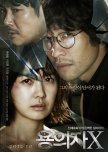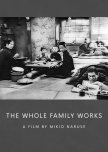
Childhood without the rose colored glasses
Director Yoon Ga Eun shared the good, the bad, and the cruel in The World of Us. The story was shown through 10-year-old Seon’s eyes. When her dad proclaimed, “What could be wrong with kids? They just go to school, study, and play with friends,” it was clear he had blocked out all memories of being a child.Seon comes from a poor family where both of her parents work. She is often in charge of her energetic little brother Yoon, who is always getting into fights with his friend Yuen. Deemed an outcast by Bo Ra, the queen bee of her class, Seon has no friends and is always the last kid to get picked during dodgeball. Her fate seems to change when Ji Ah moves to town at the beginning of summer vacation and the two hit it off. Seon embraces life in the warm summer days with her new friend walking, playing, eating, and sharing secrets. Summer can’t last forever and soon Bo Ra sets her eyes on adding Ji Ah to her hive.
Seon’s joy and desolation were on full display in young actress Choi Soo In’s face. The isolation of being deemed less than was excruciating. Seon’s goodhearted, but clueless mother thought the girls in class were her friends, never knowing the little darlings made her daughter’s life hell every day at school. When Seon and Ji Ah had a falling out, neither behaved perfectly, both making terrible mistakes. Sympathetically, both made their mistakes out of a desire to not be rejected and left unprotected on the fringe. Ji Ah had been largely abandoned by her mother and father which caused resentment toward Seon. Seon’s family struggled financially but Seon and her mother had a warm, close relationship. Director Yoon showed the vulnerability in the girls and also Seon’s strength as she attempted to find out how things went wrong so quickly. Working out human relationships in the crucible of a classroom was a daunting task. Yoon Ga Eun showed Seon’s journey with a light hand, never resorting to the over-the-top bullying in so many Kdramas. Yet also showing that words can be as sharp as a razor, especially in one raw scene involving colored pencils.
The World of Us was a claustrophobic world of dreams and nightmares as Seon and Ji Ah navigated the perilous path of growing up even in the innocence of childhood. The film was not all conflict, scenes of the girls sharing a skillet of kimchi fried rice, dyeing their nails, or happily playing in the water demonstrated the sheer joy of new friendship. The two often forged toward the unknown separately as they gradually and painfully learned the process of making friends and which friendships were worth the effort and didn’t require selling one’s soul. The World of Us was an honest trip into childhood and one worth taking.
2 August 2024
Esta resenha foi útil para você?

The price of loneliness
Aloners is a film written and directed by Hong Sung Eun, the only full-length film she’s done thus far. Which is disappointing because I quite liked her take on the price of loneliness and would love to see what else she has to offer. This film followed a young woman unable to reach past her own defenses to connect with anyone around her, further pushing her deeper inside herself.Jin Ah works at a credit card call center where she has to daily deal with rude customers and a frustrated time traveler. She lives alone. Eats alone. Smokes alone. Rides the bus alone. At a job where the employees have been zombified by the mind-numbing monotony, she works alone. Her relentless routine is challenged when she’s ordered to train Su Jin, the bubbly new employee. Su Jin has moved from her hometown to work in the bigger city and has no friends or family, leaving her alone. The only family Jin Ah has is her estranged father who had abandoned their family and swindled her as well. Jin Ah’s equally reclusive neighbor is found a week after he died buried under a fallen wall of magazines in his apartment. Suddenly and achingly, Jin Ah is forced to face her solitary existence.
Gong Seung Yeon perfectly captured Jin Ah’s tightly wound personality walking through her life where every day was just the same. Jin Ah was a prisoner in a castle, surrounded by a crocodile infested moat, a prison she had created herself. Earphones ever present to ward off any potential human contact, her only companions were her phone and television. A new neighbor asked, “Do you make a habit of being pissed off all the time?” And that was the key to Jin Ah, she wasn’t just an introvert, she was a tight ball of repressed anger and pain. Each new hit cracked away at her immaculately structured defenses
Being alone is something everyone faces at one time or another, chronic loneliness is a silent destructive force and the pain of it was palpable with the characters in this film. Director Hong slowly and subtly showed varying viewpoints on how people deal with loss and grief and the importance of human connection to help heal those wounds. If you are a fan of slow, slice of life films this might be one to try.
1 Aug 2024
Esta resenha foi útil para você?

"Can we talk?"
Apart from You was one of Naruse Mikio’s early silent films. The subject matter was a familiar one for the times, a woman was lodged between a rock and a hard place trying to provide for her ungrateful son. There were moments of slapstick comedy sprinkled through the melodrama that also included an unrequited romance.Kikue is an aging geisha trying to hang on and make enough money for her son to finish school. Terugiko is a teenager who works with Kikue. Embarrassed by his mother’s profession, Yoshio has been skipping school and joined a gang of troublemakers. When Kikue finds out she is distressed and asks Terugiko for help as Yoshio cares for her. When talking to him doesn’t work Terugiko takes him home to her parents’ house by the sea. There Yoshio discovers what a truly dysfunctional family is.
Naruse began the film with two geishas walking down the street and a gang of ruffians running about searching for someone. There were overtly comedic moments as the camera bounced around. It took a bit of time to figure out who was the focus of the story. Initially, the story began as a mother-son film and then made a turn into doomed romance. It was also unclear initially whether this was going to be a comedy or a full-blown melodrama. There was a running gag about Yoshio’s hole filled socks with a cute moment involving Terugiko’s little brother right before he found out how lucky he was. When words failed to break through Yoshio’s feelings about his mother, Terugiko tried to show Yoshio how pigheaded and thoughtless he was being through her own example. Her drunken father relied on her money to provide for the family instead of working himself and he was prepared to sell her younger sister as well. Terugiko was faced with a terrible future in order to save her sister. After being dressed down by Yoshio, Kikue made a drastic sake soaked decision. Suddenly, the funny moments didn't seem so funny.
Yoshikawa Mitsuko was 32 at the time of this film and was treated as an “old hag.” Isono Akio who played her son Yoshio was a mere 9 years younger! The beautiful Mizukubo Sumiko was only 17 years old which only emphasized Terugiko's dire circumstances. Yoshikawa and Mizukubuo were the heart of this film while Isono as the petulant man-child played it with a straight face. Aoki Tomio, a frequent child actor at the time, played Terugiko’s mischievous little brother. The acting was all pretty solid, especially for this time period. The story had a tendency to change focus as much as Naruse’s camera did. He overused the dramatic closeups and choppy editing to convey emotions in several scenes. He did make use of Japan’s natural scenery when Terugiko and Yoshio traveled by train to her parents’ house and also when they talked by the sea.
Apart from You had its flaws but Naruse managed to fill 60 minutes with emotional impact without jumping headlong into sentimentality. Women had few financial opportunities and yet were ostracized when they walked the only path they could find to survive and help their families survive. As much as I was hoping mother and son would reconcile, it was diminutive Terugiko’s fate that haunted me. This statement by Terugiko could have been an anthem of resiliency for both of the women, “I won’t be defeated by hardships.”
22 July 2024
Esta resenha foi útil para você?

My life, my love, my lady, is the sea
Full Ship was a 1967 film set in a fishing village on a remote island. Poverty and tradition kept the islanders in a vicious cycle with seemingly no way out.Gom Chi is a fifty-year-old captain of a fishing boat and the father of new baby boy. Two of his three grown sons died at sea while the third refuses to sail. The sailors and Gom owe money to the owner of the boat who takes most of their haul to pay for gas and union fees. If they don’t catch fish, not only do they not get paid, they owe for the use of the boat. They are paid pitifully even when a “full ship” returns, sometimes only hulled barley. Gom Chi dreams of owning a boat and when his boss finds out, calls in Gom Chi’s debts.
Full Ship demonstrated the trials of living in a subsistence community and much like old coal mine towns where people owed their soul to the company store, the villagers were always in debt to the boat owners. Despite having lost two sons to the sea, Gom Chi could not fathom why his son Do Sum wouldn’t join the other men on the boats. Villagers and family whispered that time in the military and his education had made him “wild.” Gom’s wife did not want either Do Sam or her new baby to become bewitched by the sea as Gom Chi had. Do Sam’s sister, Seul Seul, was not opposed to leaving the island, but her fiancé Yeon Cheol was happy eating yams and being with her, with no desire to move to “land.” Beom Soe, a former islander who made money on land, came back and had his gaze set on Seul Seul. He also brought a dark secret with him.
The last twenty minutes were dominated by tragedy after tragedy as the Dragon King reminded the villagers that they did not control the sea. And just as with the miserly boat owner, the bill for depending on the sea, came due.
“To escape from an inch of regret, to leave behind an inch of suffering, those people were thrown into the providence of the sea.”
2 July 2024
Esta resenha foi útil para você?

"Even if you solve this problem, no one will be happy"
Perfect Number was an entertaining thriller where the genius was neither a serial killer nor a super cop. Just a lonely mathematician whose lifetime obsession with solving *Goldbach’s Conjecture* had left him despondent. Female director Bang Eun Jin, helmed this 2012 film, one of her half a dozen directorial efforts.Kim Suk Go spends most of his waking moments thinking about math, until Baek Hwa Sun and her niece Yoon Ah move in next door. The beautiful and kindly Sun brings light into his dreary world. One night Hwa Sun’s ex-husband attacks her and Yoon Ah in their apartment. Suk Go can hear the violence but doesn’t intervene until silence returns. He volunteers to help Hwa Sun with the “cockroach” she killed. In a matter of moments, he perfects an alibi for the two, so that they will not end up going to jail. Hwa Sun and Yoon Ah follow his every order which might work until an unexpected variable enters the picture in the form of Detective Jo Min Bum, a tenacious cop, who also knows how smart Suk Go is.
If there was a true villain in this film it was Kim Chul Min, the abusive, rapist, pedophile, possessive, ex-husband. His violent assault changed the lives of all the main characters. I’d also call the women’s predicament an indictment on a criminal system that would punish them for defending themselves as they fought for their lives. Suk Go and the women walked outside the lines, but would never have been in that position without Chul Min’s brutal abuse instigating their actions.
Jo Min Bum was a sympathetic cop. He was doing his job and doing it well, which of course threatened the three people trying to avoid punishment. They were also sympathetic. Hwa Sun was willing to turn herself in but needed to protect her niece. Suk Go wasn’t just thinking with his head, he was thinking with his heart. All of which made the central conflict—“Even if you solve this problem, no one will be happy.”
Perfect Number wasn’t perfect as there were lapses in logic. I figured out most of the twists ahead of the big reveal, but it was still enjoyable watching Suk Go lead Min Bum on a merry chase in order to protect Hwa Sun. In the end, the two friends and adversaries would discover that the answer to “Making a problem no one can solve or solving that problem, which is harder?” was both.
20 June 2024
*Goldbach’s Conjecture*
“Every integer that can be written as the sum of two primes can also be written as the sum of as many primes as one wishes, until either all terms are two (if the integer is even) or one term is three and all other terms are two (if the integer is odd).”
Esta resenha foi útil para você?

"The friendship given me is like water that nurtures the heart and body"
Muay Thai Warrior aka Yamada: Samurai of Ayothaya was based on the true story of a ronin living in Siam (present day Thailand) who pledged himself to the king and ultimately became a governor. Movie Yamada wasn’t terribly interesting or a very good fighter, the screen only came alive when the Thai boxers showed up.Yamada Nagamasa lives in the Japanese village of Ban Yipon in Ayutthaya. The village is populated with Japanese Christians who fled their homeland and numerous ronin of defeated lords who now work in the king’s Department of Japanese Volunteers. When Yamada discovers that the thieves terrorizing the area are actually Japanese, he’s tasked with tracking down the leader. He’s ambushed by masked assassins and nearly killed. Rescued by a handful of Muay Thai fighters, he’s taken to their village and treated by the monk Phra Khruu. The villagers accept him and he begins to integrate into their lives little by little. Eventually, Phra trains the foreigner in Muay Thai and Yamada proves himself an adept learner. Every pair of elbows and knees will be needed as Ayutthaya may soon be under attack from its lethal enemy. Yamada has the additional concern of Kuroda’s assassins out to end his life.
Ozeki Seigi was nice to look at, but his character and performance were underwhelming. He was also completely unbelievable as a fighter, especially in comparison to the real Thai fighters on screen. They were fast, accurate, fierce, and obviously powerful. Ozeki’s moves were slow and limp. Before you could say, “Wax on, wax off,” Yamada had integrated Thai martial arts with Japanese. Thankfully, professional fighter Buakaw Banchamek, showed up for some spectacular Muay Thai exhibitions.
Ozeki availed himself better with a sword, but then the CGI swords and blood removed any chance of immersing oneself into the fight scenes. I was far more invested in Ketsaro Thanawut’s Khaam. There was a heavy-handed attempt at building a romance between Yamada and Khaam’s sister Jumpaa/Champa which fell flat. And the friendship between Yamada and Khaam was terribly underdeveloped which was the biggest disappointment as they could have been a real highlight of the movie.
Aside from the aggressive training for the king’s bodyguard contest and to be ready for the real threat of the enemy attacking, this movie was blithely uneventful. There were few fight scenes, although the ones shown were for the most part entertaining. Yamada sat around playing his flute often when he wasn’t playing with the children, all to let you know he was a nice guy. Most of the dialogue focused on the right way to die and how important friendship was. The villagers did everything but sit around holding hands and singing Kum Ba Yah. When they weren’t fighting to the death to be royal bodyguards or watching cockfights that is. Overall, I enjoyed Muay Thai Fighter, mostly for the Muay Thai fights. The Thai fighters were a delight to watch. This was a slightly below average martial arts movie and one for fans of the genre to give a try, if you go into it with low expectations.
8 June 2024
Esta resenha foi útil para você?

"Things can only turn out the way they are going to turn out"
The Whole Family Works was a short working poor slice of life film focused on how difficult and soul crushing it can be to find a way out of poverty. Nine children know that when they finish elementary school their only option is to work at the factory or other menial jobs to bring in money to support the family.Ishimura’s family of nine lived day to day with the three oldest boys supplementing the family’s income with meager paying jobs. Though Ishimura’s income had been in steady decline, he sipped sake and smoked while his wife lamented not having enough money to purchase tofu. The eldest child, Kiichi, realized at 22-years-old, that his future was slipping rapidly through his fingers. His dead-end factory job would never pay enough to help his parents as they aged or support a wife and family of his own. He was determined to go to school to train as an electrician to improve his chances of gaining better employment. What does filial piety mean and how much does one have to sacrifice for it? Kiichi weighed his responsibility to his parents and to himself. As he said, he had no great ambitions, “I just want enough to eat.” Ishimura was sympathetic to Kiichi’s concerns, also knowing that if he agreed to let Kiichi leave, the others would want the same freedom. As the one who handled the finances his wife was adamant that Kiichi stay. She had already been “borrowing” from one younger son’s savings and struggled every day to feed the large family.
The numerous brothers could make the film hard to follow. They weren’t always identified well at the beginning. Also, the years have not been kind to the film and it was badly faded and blurred, making it often difficult to tell which son was on screen. As a Naruse film, I have no doubt it looked splendid back in 1939, but many scenes were challenging to make out, especially the night scenes.
The family was in a perilous predicament despite the children being raised right. The kids were good students and hard workers and respectful to their parents. Yet they also had dreams of their own and didn’t want to be trapped in hard labor jobs forever. The parents understood the harsh reality that dreams were more easily achieved with money. Something the family didn’t have. Even if Kiichi succeeded in his potential goals, that success was years away, while food and shelter were needed in the present. Director Naruse Mikio didn’t give away the future, only tinged the unknown with gleeful hope and realistic concern.
7 June 2024
Esta resenha foi útil para você?

"We lived life to the fullest!"
Five of the six Venoms made a return for Shaolin Rescuers. Only Wai Pak was missing. I enjoy the Venom actors, but this movie took too long to gain any traction. It was an hour and fifteen minutes before any real action occurred and that is too long for a kung fu movie. The last forty minutes were entertaining if you can hold on that long.The story begins in familiar territory with the burning of the Shaolin temple and Hong Xi Guan injured and on the run. Gao Jin Zhong (Centipede Venom) and his crew of Manchu fighters are hot on his trail. Hong finds his way to a town that is fraught with danger. Lucky for him, four working class fighters are sympathetic to his cause. Chen A Jin (Toad Venom) is a tofu maker who practices his Mantis Style at work. Yang Da Bao (Lizard Venom) works in a restaurant where anything is a weapon with his training from the Black Tiger Clan. Gao Ji (Scorpion Venom) finds himself on the venomous end of the martial arts school he trains at, learning most of his 49 Big Dipper skills working at the dye factory. Eventually, Han Qi (Venom Apprentice) arrives with his acrobatic troupe. Three of the Venoms care for Hong pooling their meager resources to nurse him back to health. Before long Gao and his men track them down and the five heroes will be in for a fight for their lives.
The major drawback to the story is that for over an hour the Venoms spend most of their time goofing around and fighting each other for fun. It wears thin after the first “comic” fight. When danger strikes, everything picks up as the fights have real stakes. There were a couple of skirmishes with stuntmen and Lu which were faster than most of the other fights. In true Venom form there was a lot of kung fu posing. The last fight was quicker or maybe the editing was better. With the various weapons and fighters, the action felt more exciting. Phillip Kwok and Chiang Sheng were acrobatic as always, playing to their strengths. Sun Chien, a taekwondo artist in real life, brought the kicks. Lo Meng, the “big” guy, was the muscle. He was supposed to use Mantis style but I never saw it. Poor Lu Feng ended up a villain again and was often fighting against Jason Pai Piao as Hong.
Because it was a Chang Cheh movie there was plenty of blood and death. Disappointingly, the story wasn’t very tight. They could have easily cut 20 minutes of hijinks out and gotten down to business. All the smiles and pranks weren’t fooling anyone. Chang Cheh doles out death like a Vegas card dealer and you know better than to get attached to anyone. I have a soft spot for the Venoms so I was willing to impatiently wait until the final lethal confrontation knowing it would be entertaining. It was, but it still didn’t make up for the previous hour.
4 June 2024
Esta resenha foi útil para você?

"Even when you can't see danger, it doesn't mean it's safe"
Separated royal princes, Shaolin Three Stooges, sword fights, kung fu, spirit possession, betrayals, and enough evil laughter for a dozen villains, Shaolin Prince didn’t scrimp on the spectacle. Ti Lung, Derek Yee, Jason Pai Piao, and just about every stuntman working for Shaw Brothers appeared in this film.The royal babies are taken out of the palace by trusted guards when the evil Lord 9th’s men storm it killing everyone. Guard Li Zheng survives repeated onslaughts to take the crown prince to the Shaolin Temple where three “silly monks” who are forbidden from stepping foot outside take the child in to raise him not knowing who he is. Gu Long spirits the younger prince away to the Prime Minister’s home where the good official adopts the boy so that he can keep the child’s identity a secret. The youngest prince, Wang Zi Tai, is trained with the Treasured Sword until he turns twenty. The crown prince, Dao Xing, is trained in high level kung fu by the Three Stooges in a most unorthodox manner. The two brothers coincidentally meet at an exorcism and become friends unaware of their familial connection and common need for revenge.
I’m always up for a Ti Lung kung fu movie because I enjoy his screen presence if not his fighting ability. He was a little long in the tooth at the age of 37 to be playing a 22–23-year-old. Aside from that quibble he seemed to be having a lot of fun playing this light-hearted character trained by the silly monks. Alan Chan Kwok Kuen, Lam Fai Wong, and Yue Tau Wan played the adoptive father monks for Dao Xing. The slapstick could be tiring at times, but when the chips were down, the trio showed they could best anyone who dared to take them on, with their feet never touching the floor. Derek Yee played the more serious, younger prince and acquitted himself well with his sword fighting. The friends to brothers relationship was endearing. And one of my personal favorites, Ku Feng, made a brief appearance as the righteous Prime Minister. Jason Pai Piao had no problem playing the sinister Lord 9th with his literal iron fingers, and weapons decked out sedan chair. Chiang Tao and Yuen Bun brought the fire and water respectively as the Fire General and Water General---because there weren’t enough bonkers characters. I wouldn’t want to exclude the young widow possessed by her demonic dead husband that went on a killing spree. Too much was never too much with this movie!
The fights came often and no two were alike as the gold medal group of martial arts directors went all out to try new styles, weapons, and configurations. Yuen Wah, Yuen Bun, Tang Chia (also the director), Lee Hoi Sang, Kong Chuen, and Huang Pei Chih managed to choreograph fights that looked like they belonged to the same movie while not being repetitious. Too often when there are several choreographers, the fights can seem disjointed. A plethora of actor-stuntmen filled out the cast for all of the extravaganza fights at the palace and temple.
Shaolin Prince may not have been a quality movie, but for a martial arts flick with humor and a high body count, it was entertaining. I’m happy that it has been restored and taken care of as so many other old kung fu flicks are fading with time. The most valuable kung fu advice from this film, “Continue if you can, hide if you can’t!” or equally helpful, the “Run for Your Life!” style. If you enjoy Shaw Brothers movies this is one to give a try.
31 May 2024
Esta resenha foi útil para você?

"Success requires sacrifice"
Yue Song wrote, directed, and starred in Super Bodyguard aka Iron Protector. The clichés and migraine inducing editing were saved in the last act with some mind-boggling fights. If the outtakes at the end of the movie were any indication, plenty of real blood flowed as well.Wu Lin and Jiang Li were trained as children by their sifu until Jiang Li dabbled in crime and was kicked out before he learned the secret 108 Iron Kicks. Jiang Li joined a crime syndicate while Wu Lin faithfully trained, even wearing 50 kg/110 lbs worth of iron boots for ten years. After their sifu died, Wu Lin went to work for Jiang Li serving as a bodyguard to a spoiled, rich, young woman. When kidnappers came calling Wu Lin would stop at nothing to rescue Fei Fei, even if it meant confronting his friend and his painful past.
Yue Song was hard to take seriously with his terrible mullet and big stomping shoes. Becky Li had the thankless role of the annoying Fei Fei. How many times have we seen this overused rich girl stereotype? And that’s what was really the problem with this film. Nothing was new and I have seen it done better in other movies. The clichés were served up one after the other. Even the big twist at the end was no surprise. The shaky quick editing showing closeups of body parts, tigers, bad guys, good guys, etc. was dizzying. Yue also used comic book coloring and editing for certain scenes. Perhaps Yue was trying to be artistic with the back and forth editing combined with flash backs or maybe he was trying to make a mundane story interesting.
The fights made copious use of wire work as Wu Lin flew through car windows and people were thrown about as though weightless until they doubled their mass when they crashed through whatever wall or unlucky prop or stuntman lay beneath them. The final fight, while unbelievable, was highly entertaining when Wu Lin finally got his mojo going after he cut his mullet. Coincidence? I think not.
Campy, with a wildly ridiculous plot, and highly questionable editing choices, Iron Bodyguard still had entertaining moments and Yue Song made for a likeable hero with his stomping iron boots and iron fists. He was as impervious to injury and death as a Kdrama serial killer. I always enjoy seeing Xing Yu strut his kung fu stuff, even when his character couldn’t figure out what his motivation was. Between Yue’s mullet, the overused story elements, '80s kung fu movie bad guy Michael Chan as the villain, not to mention Yue's T.J. Hooker style of clinging to a racing vehicle, this movie would have felt at home in the late 1980’s. I probably would have rated it higher had it been filmed in the 80’s on my old kung fu movie curve. No points for nostalgia.
30 May 2024
Esta resenha foi útil para você?

Low budget trip to Thailand
Snapshot was another short film by director Kim Chang Gyun. Shot on a shoestring budget, Kim took his small crew to Thailand to film a trio of people on vacation. Given that Kim was the producer, director, writer, director of photography, actor, and editor, it’s best to go into this short with low expectations and enjoy the stunning scenery.Hyeong Wu and his girlfriend, Da Eun, are in Thailand for a working vacation. Hyeong is planning on opening a Thai restaurant so that he can stop working late nights at his bar. They visit Ayutthaya and see the remarkable ruins before traveling to Chiang Mai for the Sunday Market. They chat about life and children in a stilted and awkward conversation as Da Eun tries not to get in an argument. The next day he doesn’t feel well and Da Eun goes to ride and feed the elephants. She meets fellow Korean Se Jin there. They sightsee and talk hitting it off well. Da Eun is concerned about the age gap between her and her boyfriend and that he may have grown older but didn’t mature. When Hyeong and Da Eun travel to Pattaya it’s her turn to fall ill and he goes out by himself. He also meets Se Jin and strikes up a conversation conveniently forgetting he has a girlfriend.
Kim Chang Gyun enjoys having his characters sit and chat for long minutes. As in life, the conversations were often mundane and revealing. The couple came to understand that they wanted different things while attempting to sweep the differences under the rug. Se Jin and Hyeong had even more awkward conversations as he seemed to be intimating that he was interested in her while she treated him more as an older acquaintance. Of course, everyone will be waiting for Hyeong’s two worlds to collide and for him to get his comeuppance. Truthfully, I was far more invested in the women's new friendship then the romantic relationship.
As in Cine Café in Paris, one of the women was a photographer and the other was an out of work actress. This time Kim Chang Gyun played a cad who excused his behavior because a woman was beautiful. Also, as he did as a director in Paris, he showed numerous highlights of the foreign place he was filming in. The couples took us along for their sightseeing tours which I quite enjoyed.
Snapshot was a snapshot of three people’s lives as they became entangled on vacation in scenic Thailand. For a very low budget, short film, it was entertaining. I’m more lenient with these cheap, niche films. The only thing that prevented this from being a 7 for me was the omission of the women comparing notes, which after viewing these characters would have been the most fun scene of all.
29 May 2024
Esta resenha foi útil para você?

Tell me what you dream at night...
Time Renegades was an entertaining if flawed movie. Two men 32 years apart share memories during their dreams after each had a near death experience.This film had a strong cast which helped gloss over some of the bigger plot holes. I liked the premise of the story even if it was used erratically. A school teacher in 1983 tried to stop a serial killer using knowledge from a detective in 2015. Geon Woo, the detective, researched past murders which didn’t do much for the present but helped Ji Hwan in the past. Only one character attempted to use Geon Woo’s connection in a more direct manner, something I thought Geon Woo would do. There were a couple of serious lapses in logic and continuity for dramatic effect. One moment which I’m sure was meant to be melodramatically devastating actually made me laugh at its obviousness and relatively low stakes.
The film was strongest in the past, largely due to Jo Jung Suk’s performance as the grieving teacher determined to alter the deadly course of events set in motion. Ji Hwan’s love for the children and desire to avenge a death made for great motivation. Geon Woo’s romantic entanglement with So Eun felt less well developed. While there was no physical time traveling, the consciousness of the men traveled as needed. The ending was the type that I like the least in this genre and one that makes the least sense to me.
Despite my reservations, I enjoyed this film as the two men tried to undo the tragedies of the past and the echoes of death and despair in the present. The film maintained a consistent stream of action so that it was never boring. Some of the performances were better than others. The Teflon villain became almost comical as he survived endless attempts to stop or at least slow him down. The movie’s solution was novel and felt like a nod to Back to the Future, if a more deadly nod. Time Renegades may not have been a dream come true, but this dream weaver was engrossing if not thrilling.
28 May 2024
Esta resenha foi útil para você?

Confusing but Nakadai Tatsuya made it worthwhile viewing
If you don’t know the story around Shadow Hunters and the main characters this special can be confusing to watch. I had to go back and rewatch the first quarter to see if I’d just missed characters’ names and titles being introduced. Nope. Old pop culture reference alert---at least if you watch Bonanza someone will call Little Joe by his name or Hoss by his. Only a few characters received names and the plot was thin. Nakadai Tatsuya carried this show on his back.While at the Yoshino Inn, the five-year-old lord of the Takashima clan is attacked as he sleeps by a ninja. He’s been ordered to Edo to perform the sankin-kotai. Wounded or not, he has to be in Edo in three days or the clan will be annihilated. The evil Oba has sent ninjas and other assassins to stop the child from arriving. Three ronin known as Shadow Hunters decide to make sure the young lord Tadamura makes it to Edo. They will face danger every step along the way as they escort three samurai carrying a box containing Tadamura on their shoulders.
The Shadow Hunters were led by Nakadai Tatsuya and his wildly expressive eyes. He was joined by Ito Binpachi and Ryu Daisuke. Three scruffier ronin would be hard to find. Jubei (Nakadai) was also hunted by the daughter of a man he had killed five years ago. Most of the sword fights were swipe and fall with shiny clean swords. There were some exciting fights on horseback. Japanese tv was more lenient than my country in 1983. There were bare breasts and also children being murdered if either of those things are deal breakers for you.
Jubei's fellow Shadow Hunters were never named in this special although in the manga they were called Sunlight and Moonlight instead of basically "hey you 1 and and hey you 2". It was well into the movie before Oba’s name was brought up and why Jubei despised him. The woman stalking his every movement looking for a chance to kill him also received a name late in the movie---Chiaki. Other characters were never explained. For those like me, who had no idea what sankin-kotai is, it was the process of daimyos living part of the time in Edo so that the shogun’s men could keep an eye on them. By having to maintain two households and pay for traveling back and forth, it cut into their finances, thereby keeping them weaker. Why the young lord being murdered by a jealous rival or even the shogun himself, would cause the annihilation of the clan is beyond my understanding. Greedy lords or a greedy shogun hoped to access their wealth and reduce threats, but it didn’t seem like a way to engender peaceful cooperation. What do I know? A shattered vase could also cause a clan’s demise. Falls under he who has the gold makes the rules. Although the ones under threat also found a creative use for gold.
Despite the confusing and incomplete way the story was told, the three ronin were compelling to watch because of the actors playing them. Nakadai Tatsuya commanded the screen whenever he was on it. If you are familiar with the source material going into it or patient enough to follow the story until it begins to make more sense, there are entertaining moments to be had in Shadow Hunters.
24 May 2024
Esta resenha foi útil para você?

Quick, low budget trip to Paris
Two actresses, a director, and a member of a film crew all converge in Paris, France for the lighthearted film, Cine Café in Paris. This was a low budget film with Kim Changgyun wearing the hats of actor, director, writer, producer, director of photography, and editor. Whew! It felt like a family affair as everyone in the small cast with the exception of one was a Kim. This was a nice travelogue of Paris and also an “inside baseball” look at filming abroad.Hara and Eun Su are two actress friends vacationing in the City of Lights. Hara is getting over a failed relationship and audition. The two women take in the sights and discuss boyfriends and life. All is going well until Hara accidentally loses Eun Su’s beloved camera. About that time Director Shin and Mr. Lee make their acquaintance and the four seem to run into each other continually in the quaint little town of Paris where throngs of crowds are unknown. Lol
Hara and Eun Su approach the tourist sights differently. Eun Su takes pictures of art and the buildings around her, while Hara focuses on selfies. Both are dedicated to being actresses though they don’t seem to have much success yet. Shin and Lee discuss the difficulties of filming abroad as they scout locations for his next film. When Shin tells Lee that the production company has to field all of the complaints of the crew and cast, even about the food that’s served, Lee responds Mr. Kim handles all that. A nod of course to the director of this film.
There were times this movie felt like it was filmed with a cell phone, and with a low budget, it might have been. There were only a few scenes where music was inserted and it came across like old silent films because there was no dialogue when the music played. There were also placards introducing each new chapter with the setup for that part of the story, much like silent films as well.
If you want to see the main sights of Paris, this film touched briefly on them. The Louvre, Eiffel Tower, Notre Dame (pre-fire), Montmartre, a cruise down the Seine, and other familiar places were shown. The director commented in the movie that filming near these tourist attractions required permission and that there wasn’t much one could do about the large crowds, so it appeared they tried to work around those limitations in real life.
Cine Café in Paris wasn’t a great film, and it did start out too slow and self-conscious for me, but as the women worked through their problems and the men joined in with the discussions it became more engaging. Director Shin actually answered some of the questions I had about filming in Paris during his conversations with Lee. At around an hour, it didn’t require a huge time commitment to pop over to Paris and enjoy some of the sights and see how the four people overcame their personal and professional challenges.
22 May 2024
Esta resenha foi útil para você?

"Times change, so do we"
Juhan Shuttai turned Vibes’ publishing world on its head with the addition of a force of nature to a manga editing department in the form of Kurasawa Kokoro, a former judo star. Surrounded by men day and night, Kokoro used her training to learn the ropes and forge professional relationships with the oddball crew of writers and editors.After an injury causes Kurosawa Kokoro’s judo career to end she decides to work in manga editing. Twenty interviews later she lands a job at the manga magazine Vibes, the #2 magazine. Before long she is training with the rational Iokibe and butting heads with the cynical Yasui. She meets a successful senior manga creator who is struggling with his artwork and an eccentric hat wearing writer whose volatile love life threatens deadlines. Kokoro cheerfully helps to come up with solutions to the deadline and creative problems. Her mantra is always “Do your best!” Now she needs to develop her own writers and fulfill her desire to publish a sleeper hit.
This was a strange world where most women, aside from Kokoro and a couple of others, lived on the periphery. Most of the work was about the men. Kokoro seemed to be hired because she was an unorthodox woman. In real life she would be exhausting to be around. She stayed aerobically fit by running, always taking the stairs and talking so loudly, so enthusiastically, and so fast she often gasped for air. She lived in a world inhabited by mostly men. I come from a place where the majority of publishing editors are women so seeing the editing and sales departments with zero women except for Kokoro was staggering. Management was entirely male. Only one of the ten manga writers was a woman which was interesting given that 66-70% of mangaka are female. And the sole female artist was repeatedly said to have “hangups” and was only there to be taken advantage of. None of the eight manga assistants were women. The invisibility of women made it all the more visible they weren’t there when they should have been, at least as artists.
Juhan Shuttai discussed the changing environment for mangas, how e-books and closing bookstores affected the business. Lower sales caused the bottom line to be critical for the triumvirate of manga artists, publishers, and booksellers to all stay in the black. The editors and booksellers fought to keep manga relevant and selling in an ever changing market.
The problems that arose weren’t earth shattering and usually had simple solutions that fixed everything. This was a joyful, carefree watch where good actions and positive thinking were stressed. Luck could be accrued by acts of kindness and most characters learned lessons about life and happiness. If you are down and need something encouraging this would be a good choice. Despite me wanting to find the volume button to turn down Kokoro’s unrelenting enthusiasm at times, it was a nice “pick me up” drama to watch.
12 May 2024
(7.75)
Esta resenha foi útil para você?

 55
55 217
217 11
11






















